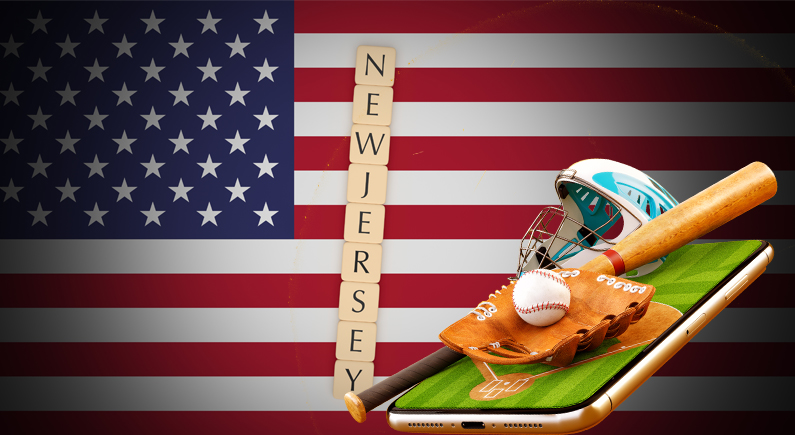About Laws And Rules Of Sports Betting In The USA
Gambling in general has been a rather controversial topic in the US. Until recently, most bettors in the United States could only choose from offshore bookmakers, as the practice of sports betting was illegal in the vast majority of states in the country. Fortunately, the situation has changed for the better in recent years. There are still challenges ahead, but so far everything seems promising and the American sports betting industry is practically thriving.
History of sports betting in the US
For decades, US sports bettors could not legally bet on their favorite sports unless they lived in one of the four states where it was allowed. This is the responsibility of the Professional and Amateur Sports Protection Act 1992.
The law was controversial, and in the early to mid-2010s, the state of New Jersey repeatedly tried to legalize sports betting. Unfortunately, New Jersey’s efforts have time and again failed. At the time, the country’s major leagues were strongly opposed to the idea of legalizing betting, as they saw gambling as something that could undermine the integrity of American sports.
A plethora of sports betting scandals, many of which occurred after the 1992 act, didn’t help the situation. In fact, just two years later, Dennis Lundy of the Northwestern Wildcats deliberately fiddled with the ball during a game. He did this to win a bet he made against his team.
Another case of shaving points occurred in the mid-2000s, although the full details of this event became known much later. Quinton Broussard, a player from the University of Toledo, pleaded guilty to embarrassment and involvement in a match-fixing scheme. A major 2007 scandal involving then-referee Tim Donaghy fixing games multiple times to secure lucrative betting wins was another nail in the legal coffin that sports betting fell into at the time.
These are far from the only instances of U.S. sports being tainted with gambling, so public opinion on sports betting has ranged from mixed to predominantly negative. As mentioned on www.superbettingsites.com, this type of issue is one of the main issues that explains why the NHL and NBA, along with other major leagues, have been strongly opposed to the legalization of sports betting.

Everything changed in 2018. Finally, New Jersey prevailed and the Supreme Court ruled that PASPA would be abolished. Since then, individual states have been free to treat the rules regarding sports betting as they see fit.
Current situation
The years following the PASPA declaration as unconstitutional led to radical changes in the sports betting landscape for US bettors. Offshore bookmakers are no longer their only option. Instead, many bookmakers are now legally available domestically, including US-based bookmakers. Media coverage of betting has also become popular. The US major leagues’ past snub of betting seems to be gone, as evidenced by the enthusiasm with which they have taken to promoting sports betting.
At the time of writing, about 80% of states accept sports betting in one way or another. Only the last few years have proved productive as several more states have legalized sports betting within their respective borders. This includes Arizona in 2021 and West Virginia in 2022, as well as New York, which legalized mobile betting in the same year.
What is allowed and what is not allowed depends on the state. In New York City, for example, both in-person and remote sports betting is no longer illegal. However, in states like Delaware, you can bet at land-based bookmakers, which is not the case with online betting. Meanwhile, Tennessee has taken the opposite approach and remote players can participate in sports betting without issue while in-person betting is prohibited. Unfortunately, novice players from Texas and Florida at the time of this writing could not bet legally at all. Other legal differences include the legal age for players. In the vast majority of states, you must be at least 21 years old to bet, but there are places like Washington DC where 18 is sufficient. All of this means that when betting on games, US players need to make sure they are fully aware of what they are allowed to do.
Future
Currently, about two dozen states have not yet legalized sports betting. The number of such states is likely to decline slowly but steadily in the near future, and we can expect that the situation with rates will change for the better. Players can even place bets on which states they think will join in the win.

However, there are potential issues ahead of us that also need to be considered when it comes to regulation.sports betting in the USA. One such aspect that some people see as a problem is the advertising surrounding sports betting.
Aggressive gambling advertising has been one of the main reasons behind the boom in the US sports betting industry as a whole, but there are concerns that sports betting ads take up too much screen time between games. Certain advertisements in the stadium, as well as on billboards and on the Internet, are also considered problematic and excessive. So much so, in fact, that it is believed that the US may have to resort to creating additional rules similar to the measures currently being taken in the UK and the EU.
There are also states like Utah that have shown no signs that plans to legalize sweepstakes are being considered. Elsewhere, attempts to make bets legal have been met with complications. In any case, there is still room for improvement and hopefully the next few years will be a good time for players living in some states that do not yet properly regulate sports gambling.
New Jersey gaming revenue up 6.7% in July, but sports betting down
Total gaming revenue in New Jersey rose 6.7% in July from a year earlier, though sports betting amounts declined, according to the Attorney General’s Office.
The combined revenue from casinos, racetracks and their partners was $480.7 million, bringing the year-to-date total to $2.91 billion, up 13.7% from the previous year.
Winnings at the state’s nine casino hotels rose 8 percent to $299 million and year-to-date to $1.61 billion, up 16 percent.
Online gaming winnings was the top performing segment, up 15.2% to $136.7 million, although sports betting lagged behind, with gross betting revenue down 18.1% to $45 million.
The amount of sports betting since the beginning of the year amounted to 353.2 million dollars, which is 16.6% less than the previous year.




